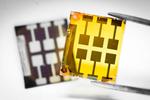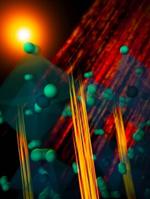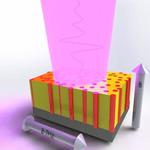Other

“University of Wisconsin-Madison engineers have added a new dimension to our understanding of why straining a particular group of materials, called Ruddlesden-Popper oxides, tampers with their superconducting properties. The findings, published in the journal Nature Communications, could help pave the …

“Perovskite particles could improve the performance of solar cells and light-emitting diodes via a simple process to stabilize the nanocrystal surface. A method for chemically stabilizing optical nanocrystals, without degrading their electrical properties, has been developed by scientists at KAUST …

“A composite thin film made of two different inorganic oxide materials significantly improves the performance of solar cells, as recently demonstrated by a joint team of researchers led by Professor Federico Rosei at the Institut national de la recherche scientifique …

“A further step has been taken along the road to manufacturing solar cells from lead-free perovskites. High quality films based on double perovskites, which show promising photovoltaic properties, have been developed in collaboration between LiU and NTU in Singapore. Research …

“A simple potassium solution could boost the efficiency of next-generation solar cells, by enabling them to convert more sunlight into electricity. An international team of researchers led by the University of Cambridge found that the addition of potassium iodide ‘healed …

“Some novel materials that sound too good to be true turn out to be true and good. An emergent class of semiconductors, which could affordably light up our future with nuanced colors emanating from lasers, lamps, and even window glass …

“Research conducted at the atomic scale could help explain how electric currents move efficiently through hybrid perovskites, promising materials for solar cells. Scientists have gained new insights into a fundamental mystery about hybrid perovskites, low-cost materials that could enhance or …

“Perovskite solar cells are a promising new low-cost photovoltaic technology, but most contain toxic lead; a team led by Brown researchers has introduced solar cells with a new titanium-perovskite material that gets the lead out. A class of materials called …

“Colossal magnetoresistance at terahertz frequencies in thin composites boosts novel memory devices operated at extremely high speed. Electronics could work faster if they could read and write data at terahertz frequency, rather than at a few gigahertz. Creating such devices …

“Experiments with ‘molecular anvils’ mark an important advance for mechanochemistry, which has the potential to make chemistry greener and more precise. Scientists have turned the smallest possible bits of diamond and other super-hard specks into “molecular anvils” that squeeze and …
